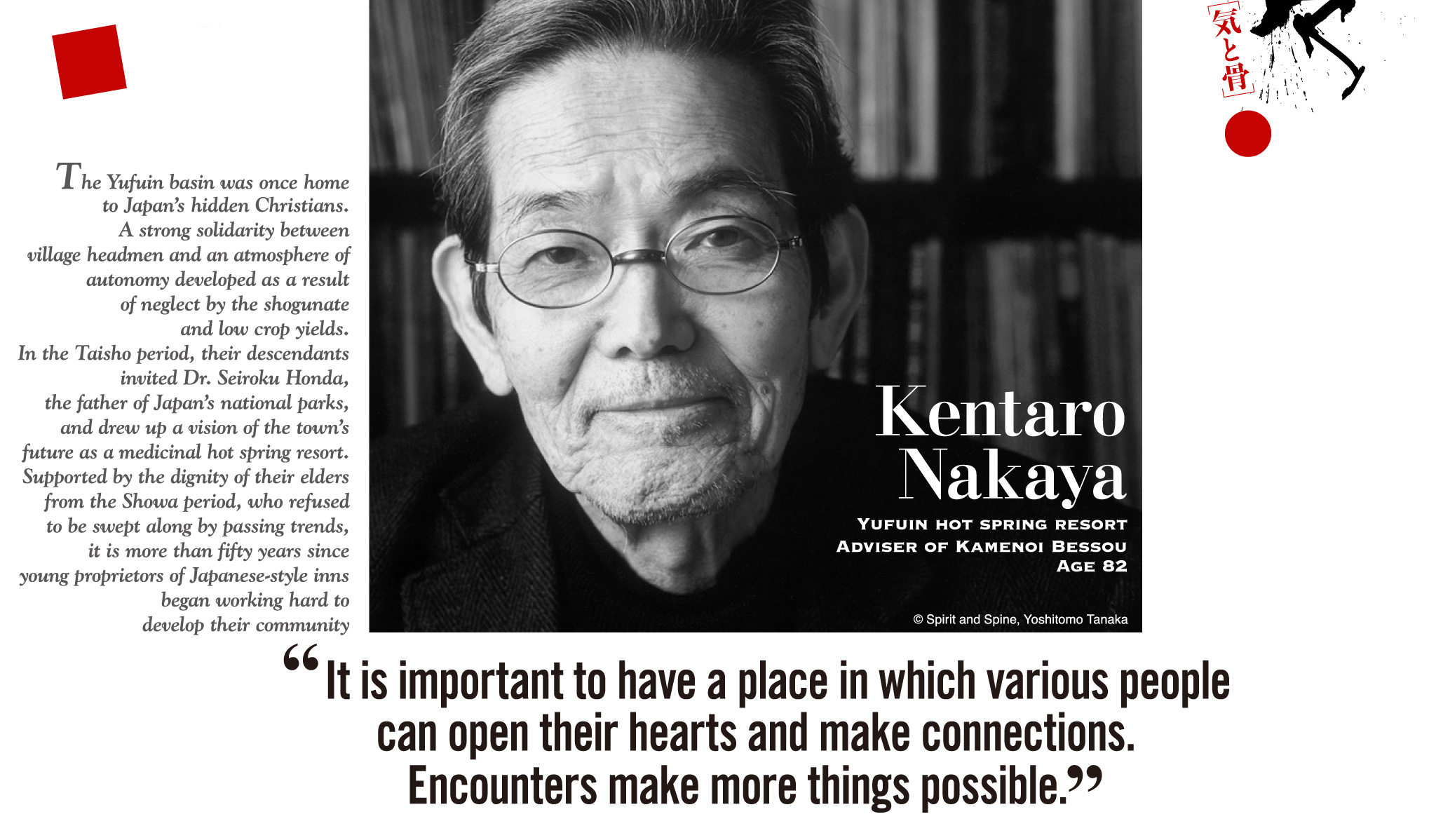Yufuin is now one of Japan’s foremost hot spring resorts, but when he returned home to take over from his father, abandoning his dream of becoming a movie director, it was an impoverished village dotted here and there with Japanese-style inns and lacking historical sites. Although the inn established by his grandfather, a man of cultured tastes, was a favorite of the literati, his mother did all the work in the kitchen, and his role as manager began by going in person to the station in search of customers.
During the period of rapid economic growth, the nearby town of Beppu built bigger and bigger hotels in order to attract tour groups, but the proprietors of Yufuin’s inns did not prioritize scale. In 1971, he and two other young proprietors went on a 50-day study visit to Europe. They toured traditional German spa towns, the ideal to which their predecessors had aspired, and became convinced of the starting point from which to build their community: a medicinal hot spring resort in which the environment was valued, and visitors’ rest cures were in harmony with the lives of the inhabitants. Each evening he got together with his companions, discussed everything at length, and began the struggle to make their ideal a reality. One by one, the plans came to fruition: recruitment of owners for cows under the “Single-cow Owner’s Ranch Campaign,” which was introduced in order to preserve the local environment; the “Eating Beef Screaming Competition”; music festivals and movie festivals in which visitors, performers, and local residents share the magic together. Each event was promoted both within the local area and beyond.
In his ongoing drive to create a healing community, he was sustained by his creed, “Encounters are the heart of life.” An area of his house which he opens up night after night as a meeting place for anyone interested, whether from the town or beyond, even now acts as a venue to bring together and nurture creative talent. Now one of the community’s elders in the Heisei period, his philosophy that the community’s residents should take charge of their own destiny has been passed on to the next generation.







































































































